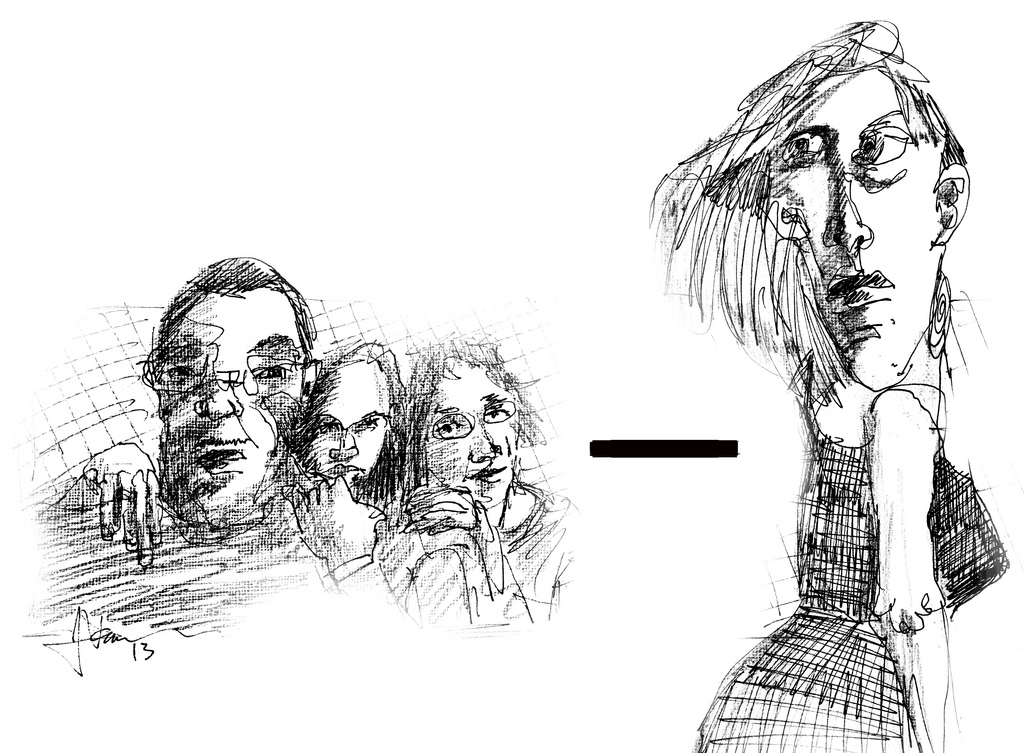First, I simply tried going to theatres to see shows. Company names didn’t mean anything to me. Judging by the name of the company I couldn’t even tell the difference between a professional and a community group. I am sure there were good shows happening at that time – I was just not able to find them. I was desperately looking for some kind of a comprehensive guide through Canadian theatre and had no luck doing so. I tried reading about Canadian theatre on Wikipedia. It helped but it was written in terminology that simply didn’t exist in my world.
The theatre I was used to was heavily funded by the government. Every company owned a venue and had a group of actors employed for life, on paychecks with full benefits and a nice pension waiting when they retired.
I did not know anyone from the theatre community and when I tried writing a few emails for meetings most of my fellow artists did not even bother to reply. I literally didn’t know where to begin. At that point, I didn’t even know what questions to ask. Finally, I decided I should go back to school. It was not an easy decision. I was in my early 30’s, with more than 10 years of practice. I had already gone through the pain of Theatre school more than a decade ago and I was not sure if I was willing to do it again.
In my mini country of only 2 million people, we only have one theatre school. It produces 10 graduate actors per year, 2 – 3 directors and about 5 dramaturges. With 13 fully subsidized theatres in the country, a national film, television and radio industry as well as commercial voice work there is enough work for the actors. Even the actors who were not so good during their studies don’t wait tables. It basically means that if you pass the audition for the school, you are guaranteed to work for life.

So, this was how things worked in my head. I had no idea how many theatre schools or programs existed in Canada and I just googled national theatre school. I applied and got in. As I entered my new environment, I started discovering more and more differences between Canadian theatre and the theatre I knew from back home. One of the crucial differences was general theatre knowledge.
In my country, every kid in school reads the Greeks, Shakespeare, Moliere as well as basic philosophy and art history. Theatre artists are very familiar with the latest theatre practices and practitioners from around the globe. Theatre festivals constantly bring a lot of shows from all around the globe and the audience is used to watching shows in many different languages they don’t understand. Theatre has a language of its own and exceeds the barrier of language and culture. The term festival itself indicates a concentrated number of events where different companies present their work. Festival is not a producing company, rather a presentation of a wide range of theatre work pushing the boundaries of what’s new.
Here, in Canada, I was shocked to realize that cultural pluralism I see on the streets seems to be a minority in theatre. For about a year now, I have been meeting artists who came to Canada to study. Some already finished their studies and tried to pursue an artistic career. The stories they have shared with me were very alarming. It seems like they were mostly very well accepted as students but had tremendous problems trying to sustain themselves as artists. Here are some examples:
“My agent kept on sending me to audition for terrorist roles.”
“I was the best in class. Now, I can’t get a role in theatre because I have an accent.”
“No one needed a geeky looking Russian. I tried exercising but I just didn’t end up looking like one of that Russian mafia butch guys.”
“I try to pay my bills with running drama classes in my native language for my community. Luckily my wife is not a theatre artist.”
Yes, it is true that I and some of my friends and acquaintances have foreign accents but so do presenters at CBC. I want to hear stories with different accents and look at the stage that reflects the street.









